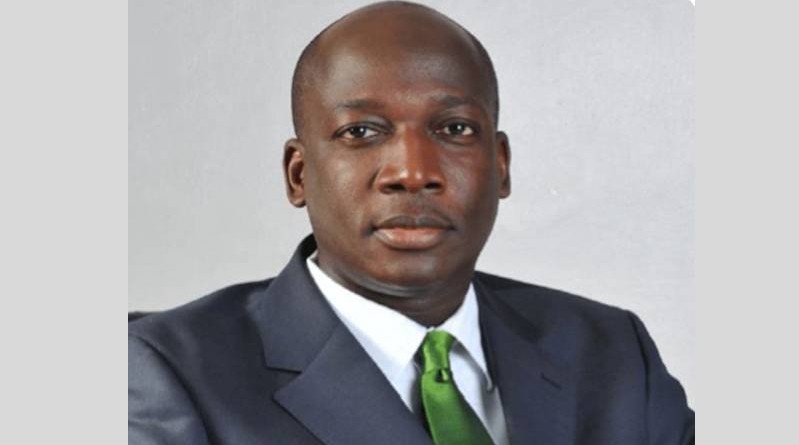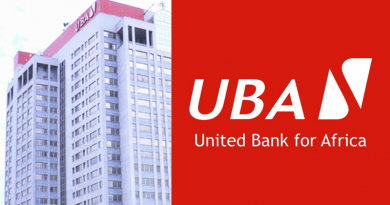How to manage a business in volatile and complex environment
How to manage a business in volatile, uncertain, complex and ambiguous environment
I have been asked to say a few words about the challenges and opportunities of operating in a volatile, uncertain, complex and ambiguous (VUCA) environment. I think the first thing when you are managing a business in a VUCA environment is that you have to face the reality that VUCA is not just a conceptual expression, it is real, by which I mean, the volatility of which you speak manifests itself every day, every week, every month. Volatility by definition means you cannot be certain what will happen today, tomorrow, or the day after.
The first thing I do in managing in such an environment is that I aim to build an organisation equipped to interpret the risks surrounding it. Always scanning the horizon, facing reality, asking yourself: ‘what are our current risks?’ Ask yourself – ‘were these risks to surface, is our business ready to deal with them?’ I find that a lot of time, people talk about working in a volatile environment, but with the first sign of volatility, the business cracks. We talk about it but do not plan for it. If you do not prepare for tomorrow, tomorrow overwhelms you.
Face the reality of the environment
The first thing is to face the reality of the complex environment and deal with it. When you face the reality, you will build more resilient models. Models that can cope with shocks and enable us to thrive in highly volatile circumstances. Take the volatility of our telco networks as an example: some people do not understand the tendency of others to carry more than one phone. I believe this is their individual response to the fragility of the networks and their frustration at the companies. They know there will be places where one network doesn’t work, so they carry another backup network to make a phone-call if one fails them.
If you apply the same thinking to business, you should always in a volatile and complex environment, think about backup plans and what changes you can make in the short term. For example, having multiple vendors for a particular service, which means that when shocks surface, you are better prepared. You can move from supplier A to supplier B or both can give you half your requirement.
Therefore, the economic cycle and the evaluation criteria of what is right in business in volatile and complex environment must now be viewed through a long-term lens. Planning cycles are shorter and you plan during these shorter cycles, because every month, every quarter, things change. Review, change, review. But evaluation of economic benefits must be done with a longer-term horizon in mind. In tangible terms, that means you may carry high inventory levels and in the short term, that comes with huge constraints on working capital, interest payments and so on. If you look at it in the medium to long-term, you realise that by having more reserved for times of adversity, volatility will reduce. For example – if ports go down or a road route is clogged, your delivery trucks won’t get through, but you, however, will be better prepared with inventory and your revenues will, therefore, grow faster. You may even gain market share and brand loyalty because of your ability to serve consumers and shoppers at a time your competitors could not. On a medium-term cycle, therefore, it becomes a benefit, not a hindrance.
Immerse in your Environment
In any environment, be it volatile or not, there is a cultural conversation within which brands must express themselves. In times of adversity, people develop a certain sense of humour about things such as poor infrastructure and implication on services, so brands seeking to serve people purposefully must immerse themselves in that environment and speak their language. It is not for nothing that people wake up in markets like Nigeria and Ghana and talk about ‘E go better’ or if you go to the Caribbean, they say ‘better a go come’ (these expressions mean; things will get better). A sense of hopelessness is counteracted with a sense of humour.
Brands should not ignore the tendency for people to try and soothe themselves. They must embrace and understand it in the context of the unpredictable times in which we live, the news culture of their people and the role their brand can play in the day-to-day conversation in communities. Whether things are good or bad, brands have a responsibility – because they are part of the fabric of life.
Flexibility
When it comes to your business model – and I have touched on this already – but in summary: it must have flexibility and resilience combined with the ability to adapt rapidly to new and changing circumstances which are critical for survival during volatile periods. It is true always, but particularly in the VUCA world, because of the tendency of people to say that the complex environment is so difficult, that excellence at world-class levels is impossible. Business leaders must be curious and go out of their way to seek best practice wherever they can find it.
Through this quest, they will be able to demolish the pervading tendencies of people to think we cannot aspire to world-class in this environment. I can tell people about what happens in Singapore, Germany or Scandinavia, and they hear me, but many are cynical about their ability to bring it to market in a country like Nigeria. If however, I find examples of the same high quality as those markets, here in Nigeria – someone deploying it in a manner from which we can observe and learn – it tends to have a much more motivating influence on people and their ability to let barriers drop and aspire to it themselves.
So, it is critical, particularly in volatile markets, to be on the continual lookout for people doing things better than you, and benchmarking as a culture in every part of your business: always looking for areas to improve and putting in place appropriate plans, delivered with speed and agility.
Team Selection
The talent base of the organisation is vital to survive and thrive as a business under usual circumstances. It is even more acutely important during volatile times. I always suggest that you have to find people, who, when they wake up in the morning, are not overwhelmed by volatility but instead appreciate that it’s the reality we face and see it as an opportunity to grow. Existing recruitment criteria can sometimes favour extremely cerebral people who, at the first sign of trouble, find a reason why they will not be able to deliver. It is, therefore, no surprise when global organisations using such criteria then struggle to sustain results in extremely and complex environment.
Reduce Hierarchy
I believe that particularly in our current environment, we must empower the frontline. For example, our sales person in Maiduguri should be able to wake up, understand the local dynamics of the company inside and out, and have the knowledge, confidence and support to succeed there. My task as a leader of this organisation must be to build a system: a management information system. I want to build a culture of empowerment that strips away layers of hierarchy so that when that guy speaks to the organisation, his voice is taken seriously, he knows he has my backing, the backing of the leadership team and will, therefore, feedback what he observes.
I call it ‘the inverted pyramid’, particularly in volatile times, you do not have the time and luxury to ask for information to reach you through layer after layer. You have to put in place mechanisms and you have to disrupt the system, otherwise, the layers of the ordinary pyramid will resist you. When you cross layers and go right to the frontline, there will be many who feel that they’ve been left out of the process, but you must persevere as a leader and create that culture so the organisation is speaking to itself about what it learns in real time and acting on it, so every employee realises how you can march faster toward your goal and is willing to express it.
Segment Markets
There is nothing like a one-Nigerian market or one market anywhere, and so you will come up with your own segment descriptors, but you must be close enough to the markets to understand different characteristics, so you can meaningfully segment. Then, with the correct segmentation, cater for those markets and serve them in a meaningful way for which they will reward you.
Organisation
In all organisations, particularly during a volatile era, where there are many external distractions, leaders must focus the organisation on key objectives. In particular, try establishing a growth mindset, because it’s a growth mindset that enables people to overcome obstacles, see opportunities and keep the organisation resolutely focused on its objectives and goals. Clarity on what we are all trying to achieve, especially in turbulent circumstances, is critical.
Ecosystem Consideration
What I mean by this is that no business is standalone. You have suppliers, customers, employees, shareholders. So, the leadership must be constantly considering how to create value for all. We call it a ‘multi-stakeholder approach’. If you create value for all stakeholders in your ecosystem, you are much more likely to win.
The multi-stakeholder approach, particularly in volatile markets, is crucial. Map them out: who are they? Are you giving back to the community in meaningful ways that advance the business? Is your supplier and customer base strong? Do your financial partners understand exactly what success looks like, and are you are working with them to achieve this?
If you get all that, correct, the fallout is positive: your business and ecosystem are strengthened. Your ability to win in the marketplace improves. Your ecosystem becomes so strong that your business has end-to-end resilience and is able to withstand sudden shocks.
Cultivate a Culture of Humility
My final point and I believe this is true of all business, but particularly in a volatile environment, is that a culture of humility and curiosity must be established. Why humility? Because you must be willing to learn from anywhere and anyone. An organisation must put learning at its heart: willing to learn from competitors, (bigger or smaller), other players (not necessarily in its industry space), anybody doing anything better. We must be willing to learn continuously, together.
If you can do that, then you are much more likely to succeed sustainably.
So, to summarise: read reality, face it, plan for it, map risk and build a resilience model.
– Benchmark religiously.
– Select a team that can cope with the complex environment we describe as volatile.
– Reduce hierarchy, so the frontline is able to speak – and the entire organisation takes it seriously.
– Take the ecosystem into consideration all the time and do things to succeed long-term.
– And the last point, be humble. Learn! Learn! Learn!
Source: Yaw Nsarkoh| Executive Vice President, Unilever Ghana and Nigeria.
https://www.myjoyonline.com




